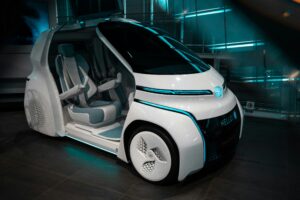Did you know that the rise of the self-driving car industry could potentially lead to a world where vehicles are operated by artificial intelligence rather than human drivers? Imagine a future where your morning commute is spent catching up on emails or reading a book, all while your car safely navigates the roads on its own. It may sound like something straight out of a science fiction novel, but this technology is closer than you might think.
According to a report by Allied Market Research, the global self-driving car market is projected to reach $556.67 billion by 2026, with a compound annual growth rate of 39.47%. This rapid growth is being driven by advancements in machine learning, computer vision, and sensor technology, which are making autonomous vehicles more reliable and efficient than ever before.
Key stakeholders in the self-driving car industry, such as Tesla CEO Elon Musk, have been vocal about the transformative potential of this technology. Musk has stated that self-driving cars could save millions of lives by reducing human error on the roads, which is responsible for the vast majority of accidents.
As self-driving cars become more mainstream, they have the potential to revolutionize the way we think about transportation, urban planning, and even the concept of car ownership. This shift towards autonomous vehicles could lead to a future where traffic congestion, carbon emissions, and road accidents are significantly reduced, creating a more efficient and sustainable society.



